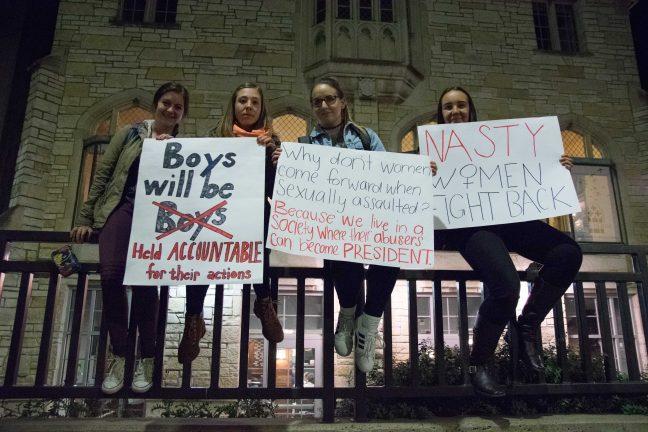In light of Education Secretary Betsy DeVos’s proposed changes to how schools should address sexual assault misconduct, the University of Wisconsin System announced it will fully examine the implications of the proposal.
DeVos’ proposal called to narrow the definition of sexual harassment on campus and reinforce due process rights for accused students — a definition otherwise set by Title IX.
“Every survivor of sexual violence must be taken seriously, and every student accused of sexual misconduct must know that guilt is not predetermined,” DeVos said in a statement to USA Today.
Under guidelines set by former President Barack Obama, sexual harassment was defined as “unwelcome conduct of a sexual nature.” But according to the proposal, DeVos set three categories for harassment: Unwelcome conduct on the basis of sex that is so severe it denies a person equal access to an education program or activity, harassment in the workplace or classroom and sexual assault.
The federal proposal called for supportive measures for the accused like course adjustments and counseling. The accused would also be allowed to cross-examine accusers during sexual misconduct hearings via a representative.
UW System spokesperson Heather LaRoi issued a statement in response to DeVos’ proposal and said the UW System will review her announcement with their existing Title IX task force to fully examine the implications of the proposed changes.
In the statement, LaRoi said the UW System is committed to upholding practices and policies that prevents sexual harassment and violence.
Madison’s Rape Crisis Center also released a statement Friday that immediately opposed changes to the Title IX law.
“These new rules will negatively affect survivors, making it even more difficult than it already is to prove sexual assault — while at the same time giving new rights to perpetrators,” the RCC statement said. “With all the growth our country is continuing to achieve to stop sexual assault and harassment from growing, this is particularly offensive to us at the Rape Crisis Center.
According to the RCC, the proposed changes would make it harder to prove sexual misconduct allegations.
If the victim returns to school, for example, the conduct is not denying them an education — so it’s no longer considered harassment, according to the RCC statement.
“The distrust and disbelief this shows for survivors is appalling to us, as is the potential for re-traumatization of a survivor,” the RCC statement said.
Public comment to the Federal Department of Education to these proposed changes is scheduled to open next week.


